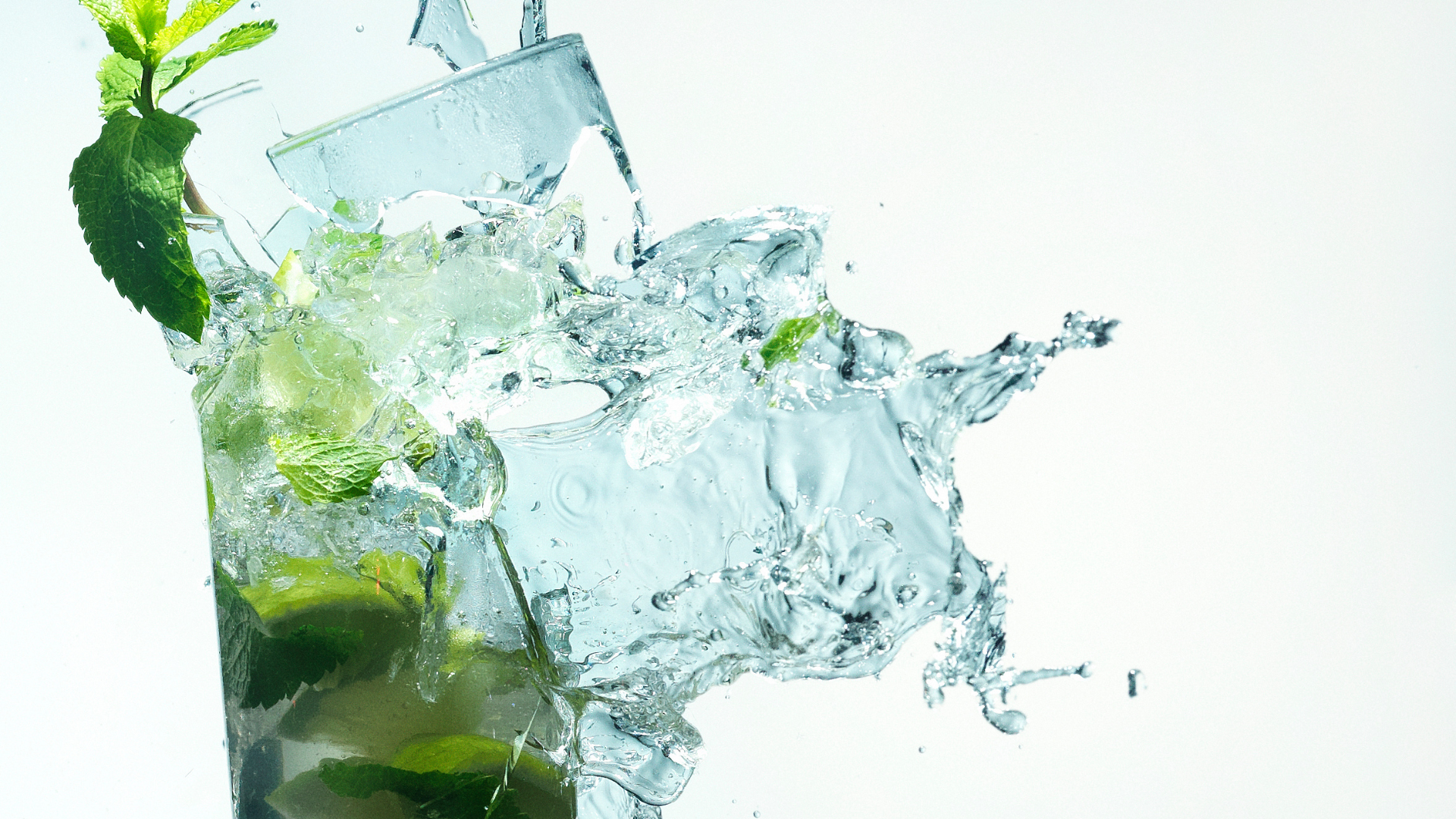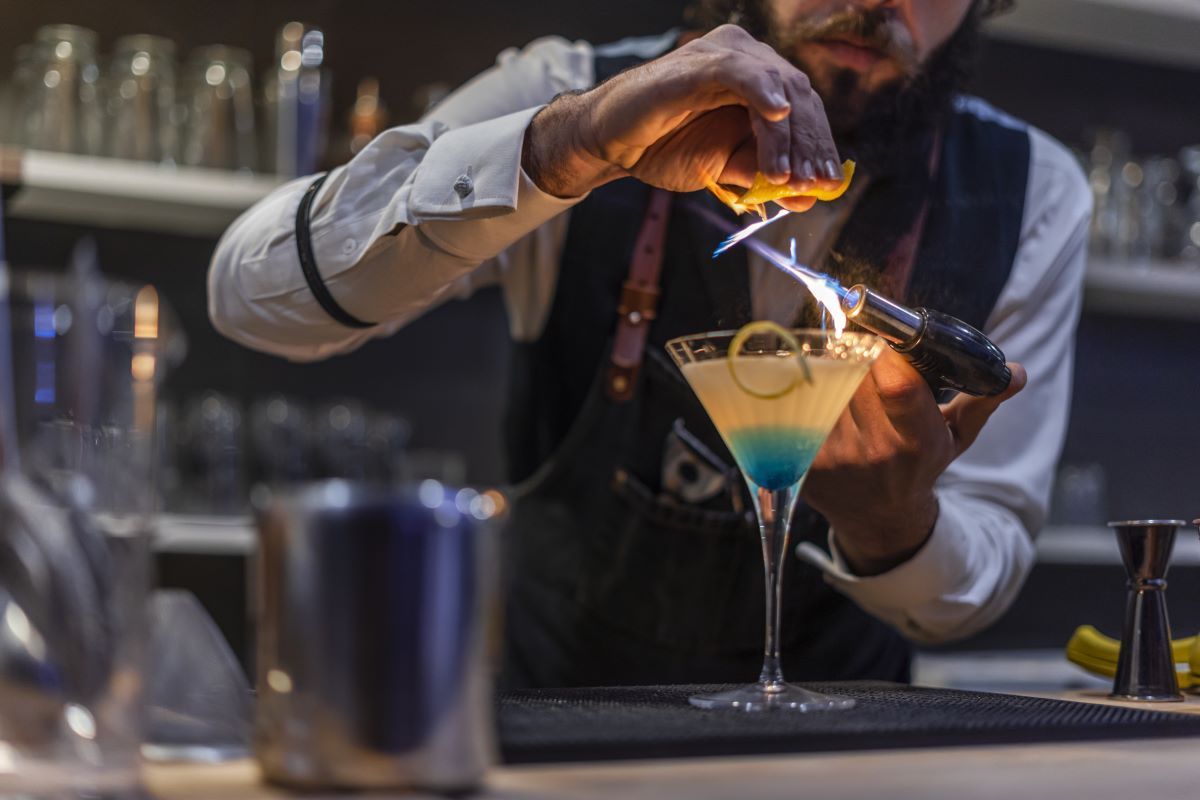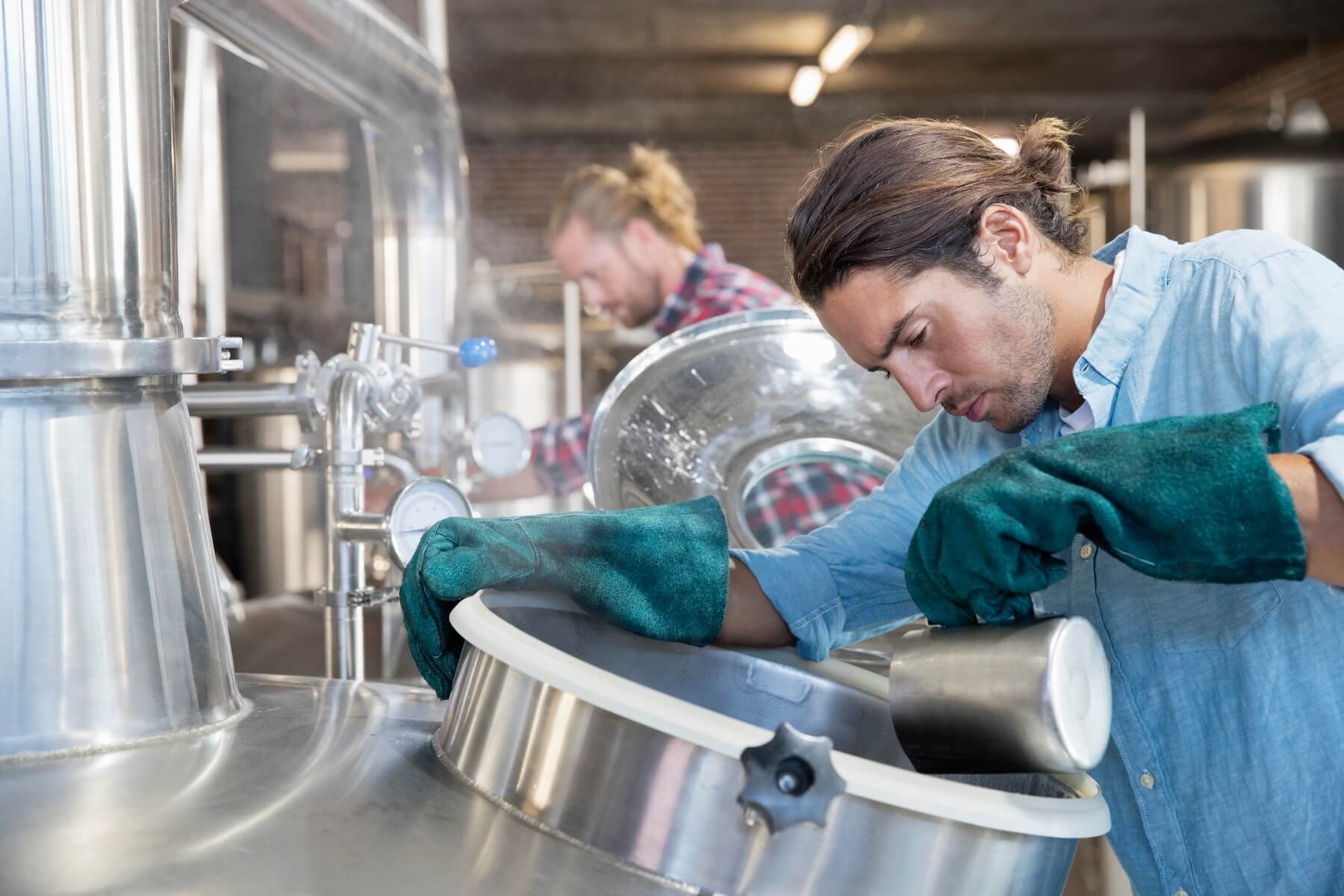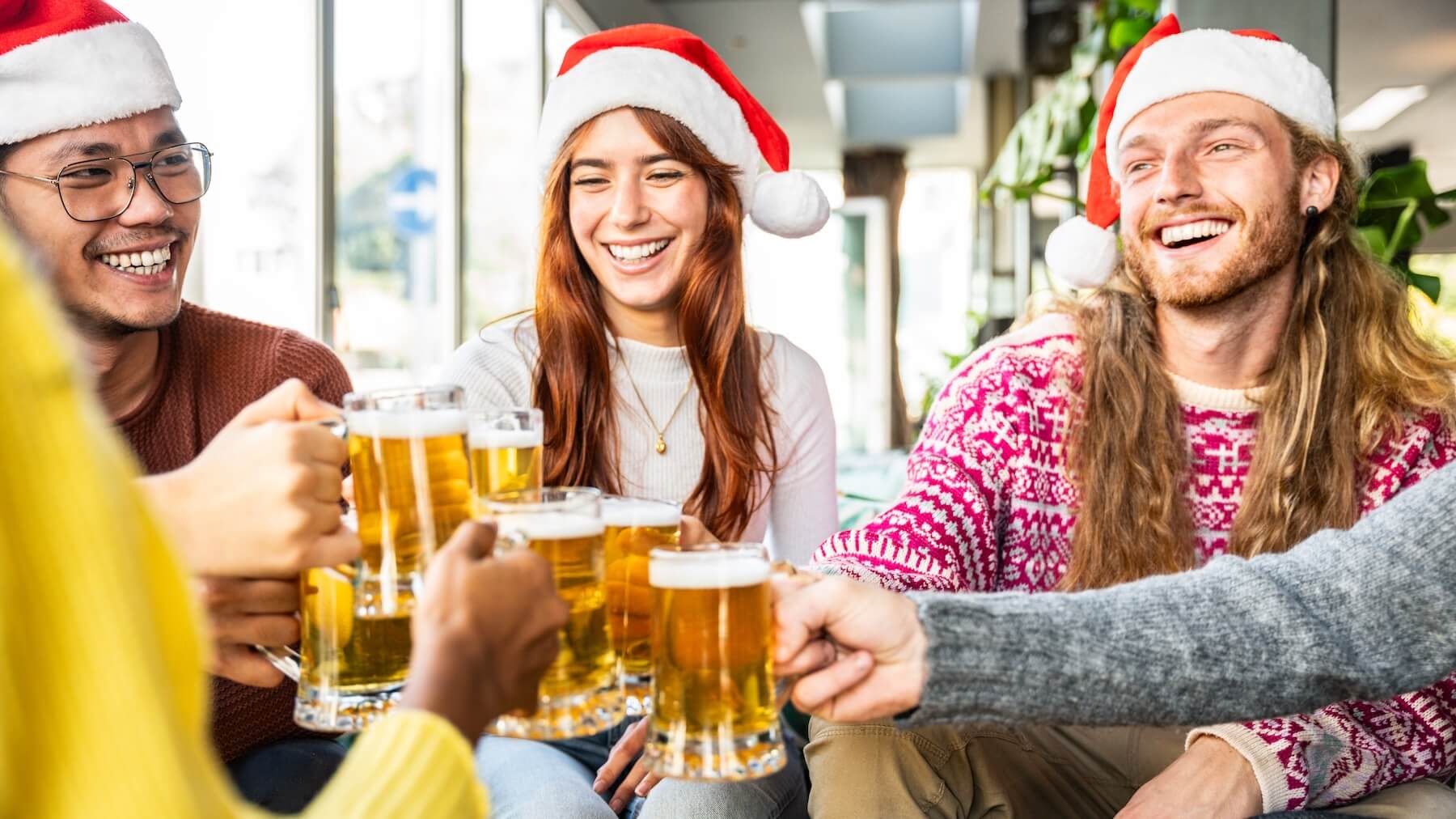There are a few iconic cocktails that you can find on just about any bar menu. Think margaritas, mojitos or martinis—classics that bartenders can whip up without breaking a sweat. But what happens when a cocktail becomes more than a recipe? What if a cocktail’s name is just as protected as the secret sauce of your favorite fast food chain? That’s where trademarked cocktails come in. Mixology’s creativity means nearly infinite variations on these recipes. But among these, a handful can only be made ONE way—legally, that is!
Trademarked cocktails? Yes, you read that right. As the trademarking trend grows, it’s no longer just about protecting logos, slogans or unique products—cocktail recipes are now fair game. So what does this mean for bars, restaurants and even RTD beverages? Let’s shake it up and dive into this wild world of trademarked cocktail trends!
Iconic Trademarked Cocktails: Spirits Brands Protecting Their Recipes
You might be surprised that the Dark ‘N Stormy®, a classic combination of rum and ginger beer, is a registered trademark. Since 1991, Gosling Brothers Ltd., the Bermuda-based rum distributor, has held the rights to this cocktail. The company passionately defends its trademark, ensuring only its Black Seal Rum is used in any “official” Dark ‘N Stormy.
As CEO of Goslings Rum Malcolm Gosling Jr. put it in an interview with Wine Enthusiast, “If the cocktail is misrepresented on a menu, it’s often an awareness issue. We’ll work with an account to fix the incorrect listing.”
Gosling reports that resorting to legal action is proportionately rare, but it is within the trademark holder’s rights to issue a cease-and-desist for such an infraction.
But the Dark ‘N Stormy® isn’t alone. Here are a few other trademarked cocktails that have become notable in distillery marketing:
- Sazerac®: This might be the oldest American cocktail, born over 100 years ago in New Orleans. The trademark belongs to Sazerac Company, which owns several spirits brands.
- Painkiller®: Trademarked by Pusser’s Rum Ltd., this cocktail has deep ties to the British Navy and is a cornerstone of their brand’s identity.
- Hand Grenade®: Known more for its iconic glassware, this cocktail is the brainchild of Tropical Isle in New Orleans and is fiercely protected.
- Whiskarita®: The most recent addition to the trademarked cocktail list. Subbing tequila in a standard margarita recipe for whiskey? It better be 291 Colorado Whiskey.
These cocktails aren’t just about the ingredients. They’re part of these companies’ brand identities, offering them a unique way to stand out in the crowded spirits industry.
Goslings has pulled out all the stops when it comes to branding and marketing their signature cocktail — they’ve secured June 9 as International Dark N’ Stormy® Day, featuring loads of internet content and publicity, and even an online “pop-up shop” with licensed merch. The company also launched its own RTD version of the Dark ‘N Stormy a few years ago, successfully expanding its trademark into this rapidly growing space. RTD brands needn’t worry just yet, but who knows how future cocktail trends may shape the legal landscape?

What Trademarked Cocktails Mean for Bars, Restaurants & RTDs
If bars, restaurants and other establishments can find themselves on the business end of a cease-and-desist order regarding trademarked cocktail recipes, might RTD brands be next?
Goslings has effectively cornered the market on its spicy, tempestuous libation. Most of the other aforementioned historic cocktails that have been trademarked seem to have done so by relying on a distiller/distributor history. This argument loses its legs when the cocktail’s origin is more ambiguous.
For something like the Hand Grenade®, the trademark lies more in the original recipe (and the unique and recognizable glassware). However, do not mess with Tropical Isle. They have laid out the repercussions of violating their brand protections, and they even pay a cash reward “to anyone furnishing information that leads to the identification and termination of the illegal use of [their] federally registered trademark the Hand Grenade® or Grenade™.
Notwithstanding, RTD brands need not begin shaking in their boots just yet.
But wait! There’s more!
Trademarked Cocktails as a Marketing Tool
If you’re a distillery or spirits brand looking to shake things up, trademarking your cocktail could be the perfect move. It’s not just about protecting your recipe—it’s about creating a unique brand story that differentiates you from competitors. Goslings, for example, has leveraged its Dark ‘N Stormy trademark to create a global marketing phenomenon. With International Dark ‘N Stormy Day on June 9, the brand has turned the cocktail into a cultural icon through digital campaigns, branded merchandise and exclusive promotions.
And the innovation doesn’t stop there. In 2022, Goslings applied for a patent to extend its trademark into the metaverse. The digital realm presents endless possibilities for spirits brands—whether through virtual cocktails, NFTs, or immersive online experiences. Talk about mixing up the future of the spirits industry!

Perhaps the slow adoption is because distilleries are still trying to understand the full impact while attempting to differentiate themselves. It’s not just about protecting a recipe—it’s about owning the entire experience. Think about a well-made cocktail: the glassware, the garnish, the setting. When a cocktail becomes synonymous with a brand, the drink itself becomes a marketing tool. It’s a conversation starter, an Instagrammable moment (hello, Hand Grenade®!), and, more importantly, a way to differentiate in an increasingly crowded marketplace.
And let’s not forget that trademarked cocktails also embody exclusivity. It’s like a secret handshake between the brand and the consumer. Customers who order a Painkiller® know they’re getting an authentic experience tied directly to the story behind Pusser’s Rum. That level of storytelling is powerful—and more brands are realizing that signature cocktails can do more than just taste great; they can build lasting connections.
RTDs & Spirit Brand Strategy
Like trademarked cocktails at the bar, RTDs can benefit from a strong brand association. Imagine cracking open a can of a premade negroni and immediately recognizing it as coming from your favorite distillery. The convenience factor might be driving RTD sales, but brand loyalty will keep customers coming back.
Brands like Cutwater Spirits have tapped into this strategy perfectly, creating an RTD line that feels like an extension of their cocktail bar. The key is consistency in branding and flavor. When consumers trust the brand behind the can, they’re more likely to pick it up at the store—again and again.
In a world where RTDs are no longer a novelty but a staple in the spirits industry, brands need to think beyond the recipe. Packaging, storytelling and trademark protection all come together to create a product that feels premium, even when it’s sold in a can.
Trademark Protection in a Crowded Market
As more and more brands realize the potential of trademarked cocktails and RTDs, the competition is heating up. This isn’t just a legal matter—it’s a business strategy. Trademarks allow brands to claim ownership over something unique, whether a particular flavor profile, a drink name or even a packaging design.
Bars and distilleries that play the long game know that securing intellectual property around their drinks can create a lasting legacy. This isn’t just a fleeting trend; it’s a smart business move reshaping how the spirits industry operates.
Of course, navigating trademark law isn’t always straightforward. There are plenty of nuances to consider, and brands must ensure they’ve done their homework. However, those who successfully trademark their signature drinks can reap the rewards legally and in terms of brand visibility.
For bars, restaurants and distilleries, these trends offer new opportunities to stand out, build brand loyalty and create lasting legacies. But with these opportunities come new challenges, especially in the legal realm. As the cocktail and spirits landscape changes, businesses must stay creative while protecting their intellectual property. And for those looking to make a mark, there’s never been a better time to explore the world of signature drinks and RTDs.
At the end of the day, whether you’re sipping on a trademarked Dark ‘N Stormy® or enjoying an RTD negroni, one thing is clear: the spirits industry is bubbling over with innovation. Knowing the rules around trademarked cocktails will help keep your business – and cocktail – on the right side of the law.
Let’s talk about how Crafted can help your spirits business strategy!





